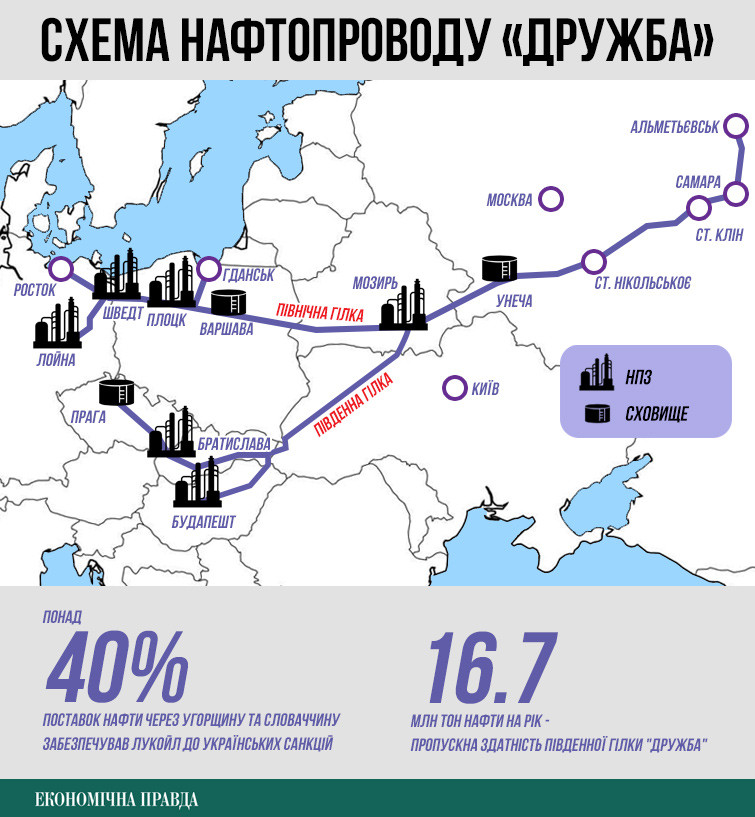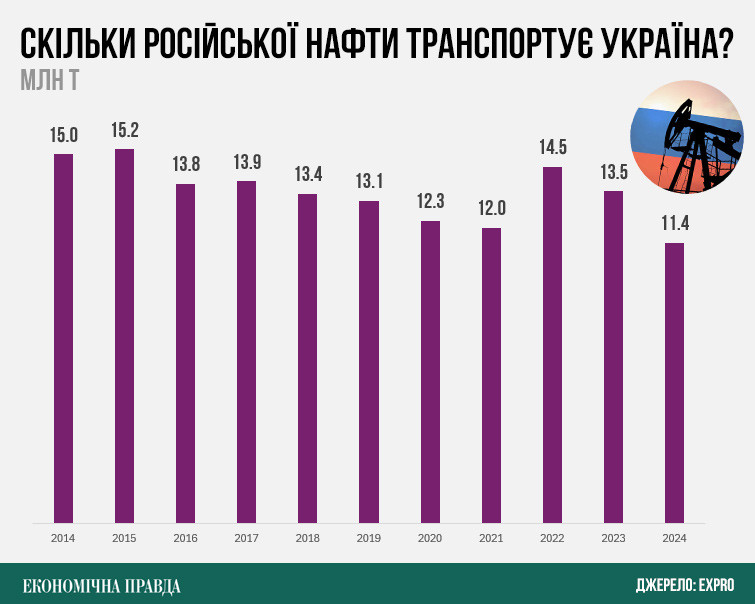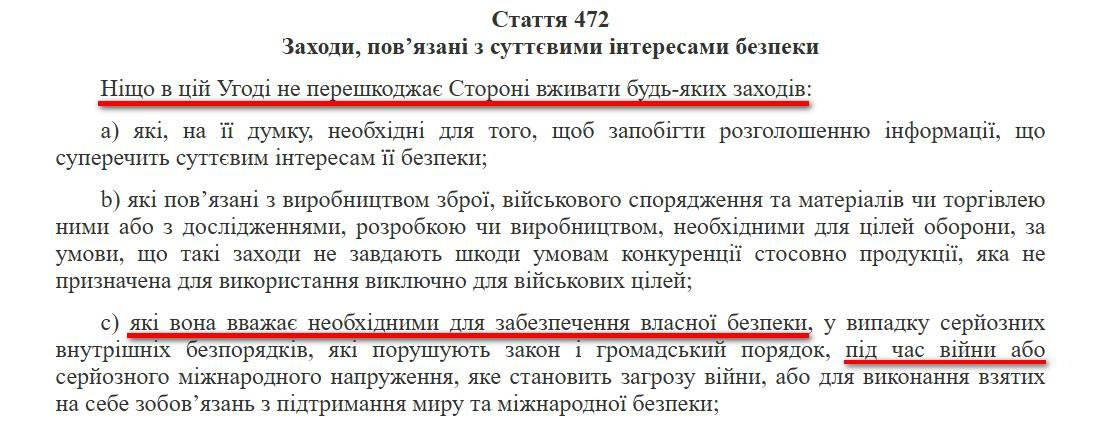Russia continues to earn $6 billion from oil sales via Ukraine. Why isn't the transit being halted?
Starting January 1, 2025, Ukraine ceased the transit of Russian gas, depriving the Kremlin of $6.5 billion in annual revenue.
On the 21st day following the supply blockade, gas prices in Europe remain stable at below $500 per thousand cubic meters, and the White House has already labeled this event as Moscow's largest and most painful geopolitical defeat.
The next logical step would be to halt oil transit, which continues to generate up to $6 billion annually for the aggressor's budget in the third year of a major war. Especially since nearly all of Europe refused Russian oil in the first months of the invasion.
The exceptions are Slovakia, Hungary, and the Czech Republic, which were given more time to find non-Russian resource alternatives. The Czech Republic has handled this task better than others and will be able to fully switch to other suppliers within six months.
Only Budapest and Bratislava insist on purchasing oil from Russia, showing no intention of seeking alternative import routes. Moreover, they continuously sabotage important decisions regarding financial and military assistance and threaten to block Ukraine's accession to the EU and NATO.
However, judging by the latest statements from Prime Minister Denys Shmyhal, the Ukrainian authorities also seem hesitant to cut off the flow of oil dollars to Moscow. Why does Ukraine still pump Russian oil, and how can this be stopped?
How much Russian oil is transiting through Ukraine
The European Union imposed a ban on importing Russian oil back in June 2022, but it did not take effect immediately. The bloc was granted a six-month extension to find alternative supply routes.
Moreover, exemptions were made for Hungary, Slovakia, and the Czech Republic, allowing them to continue purchasing Russian oil due to their lack of access to ports. This concession is still in effect today.
For these three countries, oil was transported through Ukraine via the southern branch of the Druzhba pipeline.

According to estimates by the consulting firm ExPro, for the transit of Russian oil in 2024 Ukraine received about $250 million, while the Russian budget benefited from the sale of the raw material by about $6 billion.
Last year, Russia supplied 11.36 million tons of oil through Druzhba, which is 16% less than in 2023. This volume is also a record low for at least the last 10 years.

The largest volume of Russian oil transported through Ukraine went to Hungary - over 4.7 million tons. Slovakia ranked second with 3.9 million tons, and the Czech Republic came third with 2.7 million tons.
Interestingly, among the three countries that received an extension from the embargo, only the Czech Republic actively sought alternative suppliers. Hungary and Slovakia did almost nothing and still insist on continuing transit through Ukraine.
Over the past year, Hungary did not reduce its imports from Russia at all, while Slovakia decreased its imports by only 15%. The Czech Republic, on the other hand, reduced its imports of Russian oil by 35%. Moreover, the latter has already stated that it will be able to completely abandon oil from Russia by the middle of this year.
This will be possible due to the modernization of the Transalpine Pipeline (TAL), which runs from Italy to Germany. The expansion of TAL will double the capacity for supplies to the Czech Republic to 8 million tons per year, which is sufficient for the country's needs.
"This project will allow the Czech Republic to not fear disruptions in oil supplies from Russia and soon completely abandon Russian black gold," said Czech Prime Minister Petr Fiala.
Thus, only Slovakia and Hungary will depend on the Ukrainian pipeline, as they have done nothing to give up Russian oil and continually threaten to block international assistance to Ukraine and its accession to the EU and NATO.
Why Ukraine does not stop the transit
Unlike the agreement on gas transit, which ended on January 1, 2025, the contract for the supply of Russian oil is in effect until the end of 2029. This gives representatives of the Ukrainian government a formal reason to claim that blocking the flow of Russian oil to Hungary and Slovakia is impossible.
During his last visit to parliament, Prime Minister Shmyhal stated that halting transit through the Druzhba pipeline would violate Ukraine's obligations under the Energy Charter and the Association Agreement with the European Union.
Moreover, according to the head of the government, failure to meet obligations could be used to hold Ukraine accountable and impose corresponding financial claims.
"This will lead to international arbitration, and the amount will be... it is not available today. So, countries that will incur corresponding losses will present and calculate it, but it will obviously involve significant sanctions and large sums," added Shmyhal.
However, not everyone agrees with this position. "Shmyhal's thesis that we cannot stop transit due to a violation of the Association Agreement with the EU and the Energy Charter is not true," says former head of the GTS Operator Serhiy Makohon. He provides two arguments to support his statement.
First, the Energy Charter is already a defunct agreement, from which the EU itself decided to withdraw on May 30, 2024. Therefore, referencing any obligations under it is an unclear tactic.
Second, there is a specific article 472 in the Association Agreement that allows Ukraine to take any actions to protect national security in case of force majeure circumstances.

"This definitely allows us to stop transit because the funds from oil exports are financing the war against Ukraine. We cannot stand by while Hungary and Slovakia send billions of euros to Russia every year," believes Makohon.
How to block supplies and whether it is worth doing
Energy experts surveyed by EP almost unanimously advocated for stopping the supply of Russian oil to Europe. There are several tools to implement such a step.
"Of course, based on Ukraine's interests, we need to minimize Russia's revenues from oil exports, which it uses to finance the war. These are significant resources," says Boris Dodonov, head of the KSE Center for Energy Studies.
He notes that such a move could create problems with Slovakia and Hungary at the EU level. "In fact, they could block all euro-integration decisions that require unanimity, including the allocation of a €50 billion aid package to Ukraine," Dodonov explained.
Makohon disagrees with him. "Let's address problems as they arise. Ukraine's EU membership will be in 5-10 years. We need to finish the war first, then join the EU. We cannot end the war if we are helping the enemy export oil," said the former head of the GTS Operator.
According to him, there are currently several options to stop transit, including declaring force majeure due to the war, imposing sanctions from the NSDC, or through the adoption of a law that has recently been registered in the Verkhovna Rada.
Meanwhile, an expert on international energy and security relations, president of the "Strategy XXI" Globalistics Center Mykhailo Gonchar explains that stopping gas and oil transit has different specifics.
"Unlike gas transit, where Russia cannot redirect this flow to other directions, in the case of oil, such an option exists. The resource that will not go through Druzhba can be sold through one of the terminals in Ust-Luga on the Baltic or from the port of Novorossiysk on the Black Sea," Gonchar argues.
In his opinion, the most effective method would be negotiations with the European Commission.
"In the sixth sanctions package, Europe made a temporary exception for the transportation of oil for these three countries. Now the 16th package is being prepared, and it would be logical to proactively